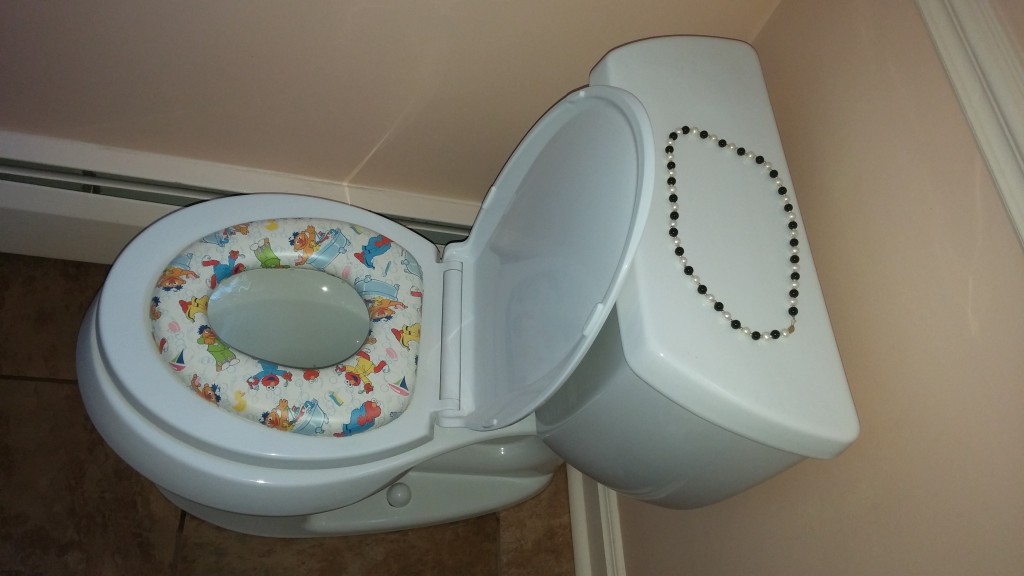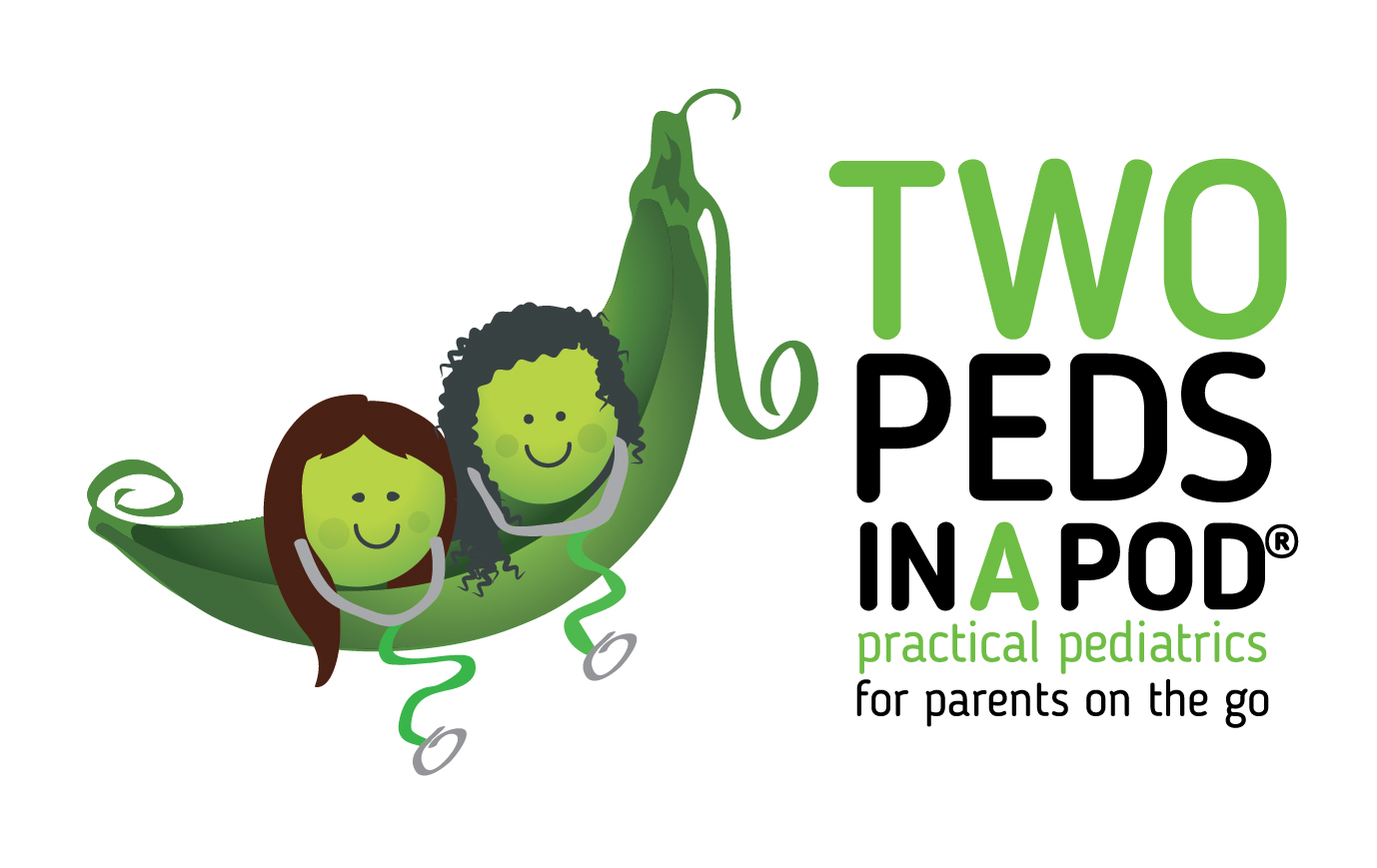 “Potty training—will it ever end?” many parents ask. Time moves in slow motion for parents teaching their kids to use the potty. For those trapped in a training time warp, take heart. It’s been almost four years since our podcast on potty training and we’re proud to report that the parents who listened to the podcast have moved onto new parenting challenges like helping with homework. For those in the midst of training, and those who are contemplating training, this post is for you.
“Potty training—will it ever end?” many parents ask. Time moves in slow motion for parents teaching their kids to use the potty. For those trapped in a training time warp, take heart. It’s been almost four years since our podcast on potty training and we’re proud to report that the parents who listened to the podcast have moved onto new parenting challenges like helping with homework. For those in the midst of training, and those who are contemplating training, this post is for you.
Children master potty training typically between the ages of two and four years. Be patient, not everyone is “typical.” More important than your child’s age, is whether she shows she is developmentally ready to train. These signs include:
– is generally agreeable/ can follow directions
– gets a funny expression before passing urine or poop, or runs and hides, then produces a wet or soiled diaper
-asks to be changed/ pulls on her diaper when it becomes wet or soiled- remains dry during the day time for at least two hours
-NOT because grandparents are pressuring you to start training their grandchild
– NOT if the child is constipated—the last thing you want to do is to teach withholding to a kid who already withholds
-NOT if a newborn sibling has just joined the family. A new baby in the house is often a time of REGRESSION, not progression. However, if your toddler begs to use the potty at this time, then by all means, allow him to try.
Make the potty a friendly place. Have a supply of books to occupy your child while she sits. Make sure her feet are secure on the floor if using a potty chair or on a stool if using the actual toilet. If using the real toilet for training, consider placing a potty training rim on the toilet seat to prevent your child from jack-knifing into the toilet. If your child is afraid of the bathroom, go ahead and put the potty chair in the hall just OUTSIDE of the bathroom.
Have reasonable expectations based on age. A two year old’s attention span is two minutes. Never force your child to sit on the potty. If he doesn’t want to sit, then he isn’t ready to train.
Your can lead a horse to water… reward the child for sitting on the potty, even if she does not “produce.” Reward by giving a high-five, verbal praise, or a small, cheap trinket such as a sticker. Do NOT promise your child a trip to Disney for potty training—otherwise, what will you do when she learns to ride a bike or tie her shoes? Accept that she may simply enjoy sitting fully clothing on the potty singing at the top of her lungs for a few weeks.
Let your child learn by imitation At home, have an open door bathroom policy so she can imitate you and her older siblings. At school, she will imitate her potty-trained classmates.
Initially, kids rarely tell their parents they “have to use the potty.” For these kids, schedule potty visits every 2-3 hours throughout the day. Do potty checks at key times such as first waking upright before nap and bed. Be sure to spend extra time a half an hour after meals or after a warm bath. Both meals and warmth stimulate poop!
A child is potty trained when she can do the whole deal: use the potty, help wipe, help un-dress and re-dress, and wash hands.
If the child refuses to wash hands after using the potty, she is not trained. Ultimately, the goal is for her to gain independent toileting skills. However, she will need your supervision for a while.
Important note for parents of BOYS: First potty train your son to sit for ALL business. Teach him to gently press his penis downward so pee lands in the toilet and not all over the room. Once your son stands up to urinate, he may become so excited that he may never sit down again. Better to wait until he uses the potty consistently with few accidents before teaching him to stand up. Even after he begins to stands to pee, have him sit on the potty daily to allow him time to poop.
Don‘t be surprised if your child trains for pee before poop. In fact, many kids go through a phase when they ask for a diaper to poop in. After all, it’s frightening to see/feel a chunk of your body fall into an abyss. Dump the poop from the diaper into the potty and practice waving bye-bye.
A note about night time and naps: Potty train for when your child is awake. Your child will spontaneously, without any training, stay dry at night and during naps. Some kids sleep more soundly than others and some kids (see our post on this subject) are not genetically programmed to stay dry overnight until they are elementary school aged. No amount of daytime training will affect what happens during sleep. Moderate fluids right before bed and keep putting on the diapers at night until you notice that the diapers are dry when your child wakes up. After a week of dry mornings, try your child in underwear overnight. Occasional accidents are normal for years after potty training, so you might want to put a water proof liner under your child’s sheets when first graduating to sleep underwear.
Disposable training pants: We like sticking to underwear while potty trainers are awake and diapers while asleep. A reluctant trainer tends to find training pants just absorbent enough that he does not care if he is wet. However, the pants are not absorbent enough to prevent rashes from stool or urine. Plus they are more expensive than underwear AND diapers. Explain to your child “sleep diapers” are perfectly acceptable until their “pee pee learns to wake them up.” Use the training pants when your child is older and is mortified by the idea of a diaper or if your family is going on a long car ride and you don’t want to risk urine on a car seat.
Above all: avoid power struggles. If potty training causes tears, tantrums, or confusion then STOP TRAINING, put those diapers back on, and try again a few weeks later.
After the training, keep an eye on how often he pees and poops. Older kids get “too busy” to go to the potty. Make sure he is in the habit of emptying his bladder four to six times a day and having a soft bowel movement every day or every other day.
Ultimately… you just have to go with the flow. And remember, everything eventually comes out right in the end.
Julie Kardos, MD and Naline Lai, MD
©2013 Two Peds in a Pod®
Thanks to the Families With Young Children parenting group at Congregation Rodeph Shalom in Philadelphia, PA for inviting us out to a last week to talk about potty training. The discussion inspired today’s post. Special thanks to Lauren Rose and Rabbi Jill Maderer pictured on the right for organizing the talk and for blessing such an important topic.



